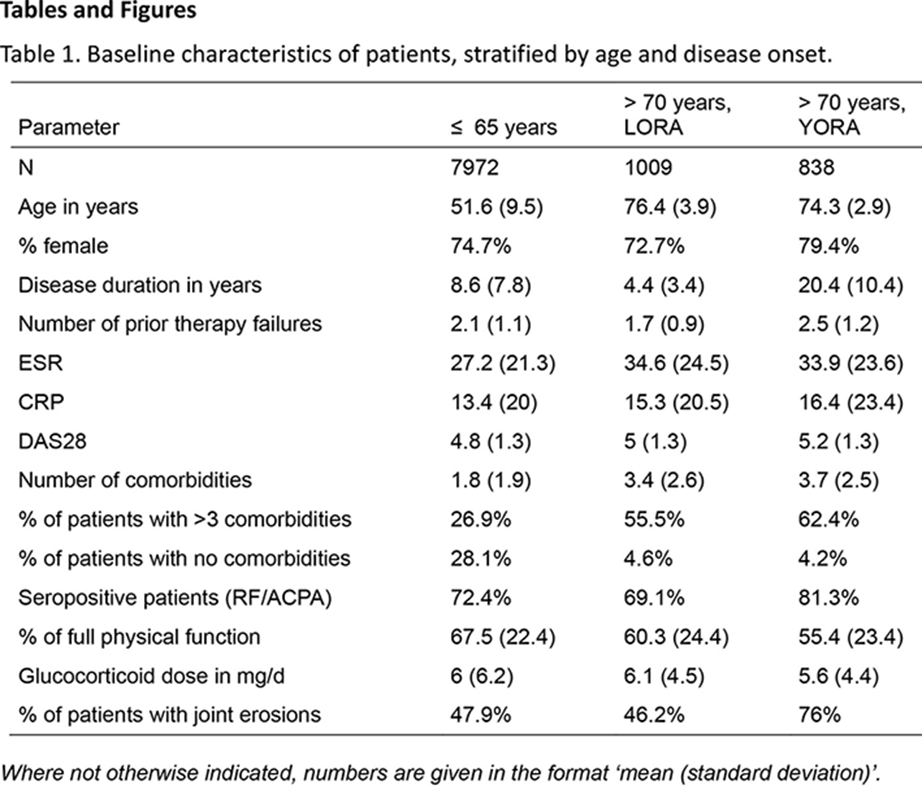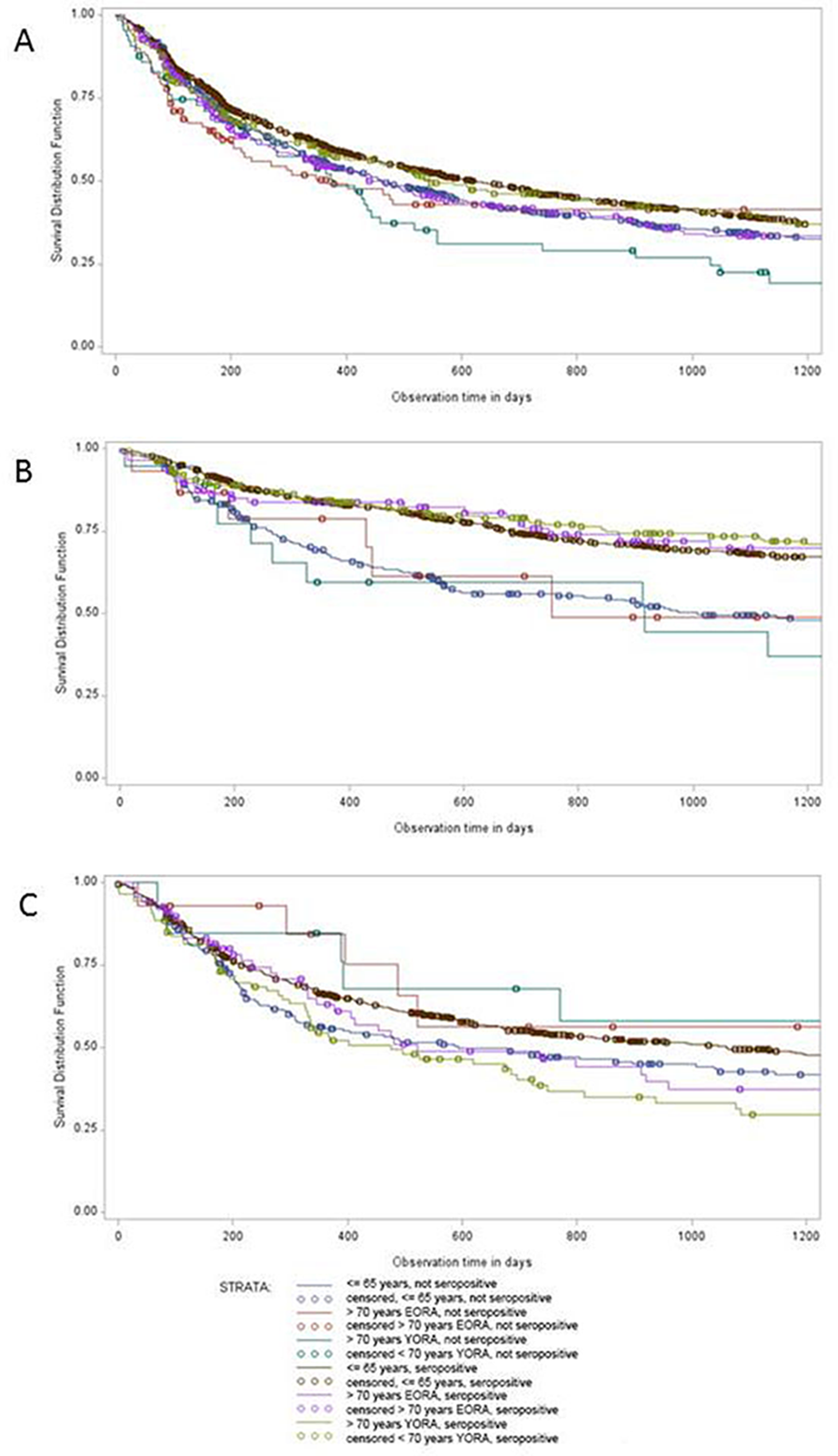

Background: Due to demographic changes an increasing number of persons reach an age above 70 years. Therefore, the adequate therapy of elderly patients with rheumatoid arthritis (RA) is an increasingly important topic.
Objectives: To compare treatment continuation of several biologic DMARDs in patients ≤ 65 with elderly patients > 70 years, stratified by onset of disease (young onset (<65 years) and late onset (≥65 years)) and by seropositivity.
Methods: The German register RABBIT is a prospective longitudinally followed cohort of RA patients enrolled with a new start of a DMARD after at least one csDMARD failure. For the current analysis patients who were enrolled with a biologic DMARD between 01/2007 and 04/2018 were included. Kaplan Meier methods were applied to analyse treatment continuation.
Results: Among the 9,819 RA patients included in the analysis, 7,972 were ≤ 65 years old and 1,847 were older than 70 years (among them 180 patients above 80 years). Among the patients ≤ 65 years, 28% received a csDMARDs and 72% a bDMARD, while among the patients above 70 years, 35% received a csDMARDs and 65% a biological. Elderly patients with a young disease onset (YORA) were more frequently women and more frequently seropositive, on average had a higher number of prior treatment failures, a worse physical function and were more likely to have joint erosions than elderly patients with late onset (LORA) (

Treatment continuity in (A) TNF inhibitors, (B) abatacept and rituximab, (C) tocilizumab

Conclusion: These results suggest that bDMARD treatment may be used for elderly patients with the same effectiveness as in younger patients.
Acknowledgement: RABBIT is supported by a joint, unconditional grant from AbbVie, Bristol-Myers Squibb, Celltrion, Hexal, Lilly, MSD Sharp & Dohme, Pfizer, Roche, Samsung Bioepis, Sanofi-Aventis and UCB.
Disclosure of Interests: Anja Strangfeld Speakers bureau: Speakers fees from Bristol-Myers Squibb, MSD, Pfizer, Roche, Klaus Krueger: None declared, Bernhard Manger: None declared, Christian Kneitz: None declared, Angela Zink Speakers bureau: Speakers fees from AbbVie, Janssen, Pfizer, Roche, Sanofi, Martin Schaefer: None declared
DOI: 10.1136/annrheumdis-2019-eular.4213